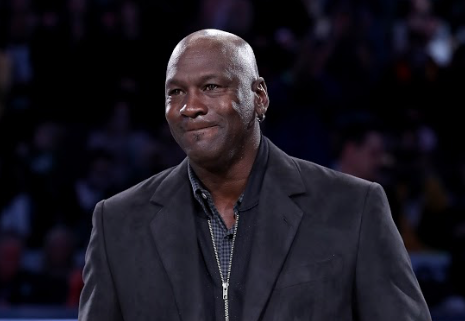Episodes 7 and 8 of Michael Jordan’s The Last Dance docuseries didn’t hold back.
Jordan and former Chicago Bulls teammate Steve Kerr went into depth about the time they got into a fight during a scrimmage.
“Our relationship dramatically improved in our trust in each other,” Kerr said. “It was like, ‘All right; we got that out of the way.’ We’re going to war together.”
While practicing one day, Jordan and Kerr became physical with one another after moments of heated tension.
“I have a lot of patience as a human being. But I tend to snap at some point because I’m extremely competitive, too,” Kerr continued. “I’m just not really good enough to back it up, usually. But I’m going. I’m going to fight.”
Things got so intense that it caused Kerr to hit Jordan in the chest.
Jordan reacted by hitting Kerr in the face.
Phil Jackson immediately kicked Jordan out of practice. When Jackson met with Jordan in the locker room, Jordan said, “I lost it for a second.”
Jordan later called Kerr and apologized.
“It had nothing to do with you,” Jordan recalled telling Kerr. “I feel bad.”
“It was the best thing I ever did was stand up for myself with him,” Kerr said. “He tested everybody he played with. I stood up to him.”
“He earned my respect,” Jordan added. “He wasn’t willing to back down to be a pawn in this whole process.”
The documentary also showed Jordan’s emotions as he explained his love for the game, which came with much intensity. He spoke on his competitive nature, the narrative of being the bad guy, as well as the tragic passing of his father, James Jordan.
James was fatally shot in July of 1993. He was 56. According to the New York Post, the murderers were two teens by the name of Daniel Green and Larry Demery.
Two months after his father’s passing, Michael retired from the NBA for the first time.
“It made me realize how short life is, how quickly things can end, how innocently,” Jordan said during a press conference when he announced his retirement. “And I thought that there are times in one’s life when you have to put games aside. I wanted to give more time to my family. I’ve been very selfish about centering things on my basketball career. Now it’s time to be unselfish with them.”
Jordan also revealed at the time that his father wanted him to retire following his first championship win in 1991.
“I have nothing more to prove in basketball,” Jordan added. “I have no more challenges that I felt I could get motivated for. It doesn’t have anything to do with my father’s passing, or media pressure, or anything other than that I had achieved everything in basketball I could. …I am trying to deal with the overwhelming feelings of loss and grief in a way that would make my dad proud.”
Jordan also put an end to all rumors that the death of his father was somehow related to his alleged gambling addiction.
“I simply cannot comprehend how others could intentionally pour salt in my open wound by insinuating that faults and mistakes in my life are in some way connected to my father’s death,” he said.
Elsewhere, the documentary touched on Jordan’s short time in the Minor Leagues.
When Jordan retired from Basketball in October of 1993, the following month, Jerry Reinsdorf who owned the Bulls and White Sox, informed the general manager, Ron Schueler of the White Sox, to expect a call from Jordan.
“He wants to start training for baseball,” Reinsdorf recalled telling Schueler. “Make the place available to him, but don’t make him any promises.”
Jordan called the last week in November, Sports Illustrated reports.
“I’d like to take some swings in the batting cage,” Jordan said to him over the phone.
Jordan ended up playing for the Chicago White Sox Double-A minor affiliate league the Birmingham Barons for one season. ⠀⠀⠀⠀⠀⠀⠀⠀⠀
‘The Last Dance’ docuseries will conclude with episodes 9 and 10 this Sunday.


